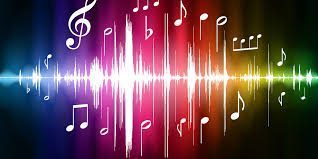Greg Kaufman manages the Music Program at Stanford Hospital. He recalls being stopped in the hallway by a patient who was going to be discharged. “Aren’t you the music man?” the patient asked Greg. “Yes,” Greg replied. “There are a lot of great doctors here who cured my body,” the patient continued, “but the music cured my soul!” Greg and his colleagues understand how music can trigger emotional responses in people. Combining their musical skills with training in music therapy, they can stimulate patients or help them relax. They help them recover from their illnesses to heal faster.
Spurred by several research studies, a number of hospitals have added music therapy to their toolbox of options to ease stress and anxiety in patients and help the healing process. In an article published in the Harvard Health Blog, Beverly Merz remembers how a string quartet playing outside the doors of the breast imaging center shifted her mind away from her anxiety as she waited for her mammogram. “By the time my name was called,” she says, “I had almost forgotten why I was there.”
Amy Novotney describes research on premature babies conducted at the Beth Israel Medical Center in New York, in which appropriately chosen music could slow a baby’s heart rate, increase the time the infant stayed quiet and alert or sometimes help them sleep longer. In the process, the baby’s positive reactions lowered the parents’ stress.
If you are a science aficionado, pick up a copy of Daniel J. Levitin’s 2006 bestseller This Is Your Brain on Music, and learn about the cognitive neuroscience of music. A professor of neuroscience and music at McGill University, Dr. Levitin and his research colleagues showed that music improves the body’s immune system and reduces stress by increasing production of the antibody immunoglobulin A and cells that attack invading viruses. At the same time, it also reduces levels of the stress hormone cortisol.
You don’t have to be ill to benefit from the healing powers of music. A growing body of research highlights the various benefits of listening to music that we like. Doing so makes you happier and more relaxed, reduces stress levels, helps you sleep better, and wards off depression. It also helps you improve memory function and stay sharper with better brain health as you age.
Here are five different ways to incorporate music into your daily routine. (1) Sing in the shower! (2) If you are one of those who turns on the TV in the morning, don’t! Instead, listen to Nikhil Banerjee playing a morning raga on the sitar, your favorite bhajan or the latest from a rock band. (3) if you commute back and forth to work, keep your eyes on the road and your mind on your favorite music playing on your phone or music system. (4) add music to whatever mode of exercise you prefer – and if you don’t exercise regularly, you should! (5) Before you go to bed at night, turn off the lights and listen to 15 minutes of soft, calming music. When I feel down or depressed, I put on my walking shoes don my Bluetooth headphones, head for the park and listen to Chandrika Krishnamurthy Tandon’s Soul Call. By the time I get home my heart is singing. Yours will be too!
by Mukund Acharya | Jan 3, 2019

Leave a Reply